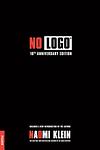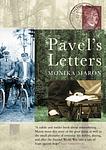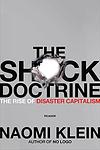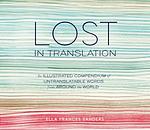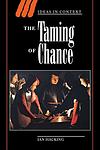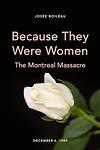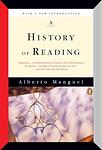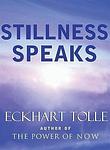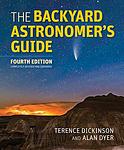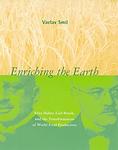The Greatest Canadian, German "Nonfiction" Books Since 1980
Click to learn how this list is calculated.
This list represents a comprehensive and trusted collection of the greatest books. Developed through a specialized algorithm, it brings together 288 'best of' book lists to form a definitive guide to the world's most acclaimed books. For those interested in how these books are chosen, additional details can be found on the rankings page.
Genres
Countries
Date Range
Reading Statistics
Click the button below to see how many of these books you've read!
Download
If you're interested in downloading this list as a CSV file for use in a spreadsheet application, you can easily do so by clicking the button below. Please note that to ensure a manageable file size and faster download, the CSV will include details for only the first 500 books.
Download-
1. The Rings of Saturn by W. G. Sebald
"The Rings of Saturn" is a richly detailed travelogue that follows the narrator's journey along the coast of Suffolk, England. The narrative weaves together history, literature, and personal anecdotes, exploring topics as diverse as the decline of the herring industry, the horrors of colonialism in the Congo, and the life of philosopher Sir Thomas Browne. The book is characterized by its melancholic tone, its digressive style, and its meditative reflections on memory, time, and decay.
-
2. The Emigrants by Winfried Georg Sebald
"The Emigrants" is a novel that explores the experiences and memories of four different emigrants, each with a unique and complex history. The narrative primarily focuses on the psychological impact of displacement and the haunting nature of the past. The author delves deep into their lives, revealing their struggles with identity, loss, and the persistent influence of their roots. The narrative is interwoven with historical events, photographs, and other documents, creating a rich tapestry that blurs the line between fact and fiction.
-
3. I Will Bear Witness by Victor Klemperer
"I Will Bear Witness" is a chilling personal account of life in Nazi Germany from 1933-1941. The author, a Jewish professor, meticulously details the daily life under Hitler's regime, capturing the fear, oppression, and constant threat that Jews faced. The diary serves as a powerful testament to the horrors of the Holocaust and the resilience of those who endured it.
-
4. No Logo by Naomi Klein
This book explores the negative effects of corporate branding and globalization. It critiques the marketing strategies of large corporations, arguing that they exploit workers and manipulate consumers. The author also discusses how these corporations have a significant influence on culture and public space. The book suggests that consumer activism and grassroots movements can serve as effective counter-forces to corporate power.
-
5. Outliers by Malcolm Gladwell
The book examines the factors that contribute to high levels of success. Through a compilation of anecdotes and analyses of various cultural phenomena, it argues that success is not simply a result of individual talent or intelligence, but rather the result of a combination of opportunities, hidden advantages, cultural legacies, and the amount of time spent practicing a specific task. The author challenges the traditional notion of the "self-made" individual by emphasizing the importance of external influences and timing, such as being born in a certain era or having access to specific resources, in shaping one's ability to achieve extraordinary accomplishments.
-
6. Systematic Theology by Wolfhart Pannenberg
"Systematic Theology" is a comprehensive exploration of Christian doctrine from the perspective of a renowned German theologian. It delves into the nature of God, the creation of the universe, and the essence of humanity, among other topics. The author's approach is unique in that he uses historical and scientific knowledge to interpret and explain Christian beliefs, making this a significant contribution to modern theological thought.
-
7. The Glenn Gould Reader by Glenn Gould
"The Glenn Gould Reader" is a compilation of writings by a renowned Canadian pianist, known for his unique and insightful perspectives on music and culture. This collection offers a window into the artist's mind, featuring a diverse range of essays, articles, reviews, and interviews that explore his philosophies on performance, the intricacies of musical interpretation, and the role of technology in the arts. His articulate and often provocative commentary extends beyond classical music to touch upon a variety of subjects, reflecting his broad intellectual interests and distinctive voice in the world of music and beyond.
-
8. Die Totalitäre Erfahrung by Karl Dietrich Bracher
The book in question provides a comprehensive analysis of totalitarianism, exploring the political and social conditions that give rise to such regimes. It delves into the characteristics of totalitarian states, examining how they gain and maintain power through the manipulation of ideology, the use of terror, and the control of mass communication. The work also reflects on the historical instances of totalitarian governments in the 20th century, offering insights into the dangers they pose to individual freedoms and democratic structures. Through its examination of the dynamics of total control, the book serves as a warning about the fragility of democratic institutions and the constant need to defend them against authoritarian threats.
-
9. Pavel's Letters by Monika Maron
"Pavel's Letters" is a poignant narrative that explores the personal journey of a novelist who uncovers her family's past in war-torn Poland. After receiving a collection of letters from her grandfather, Pavel, the protagonist delves into the history of her family, their experiences during World War II, and the hardships they faced under Stalin's regime. The book is a compelling blend of personal memories, historical facts, and the exploration of the human spirit's resilience in the face of adversity.
-
10. The Theory Of Communicative Action by Jürgen Habermas
The book is a seminal work in social theory that explores the concept of communicative action, where individuals interact based on mutual understanding and pursue rational arguments, consensus, and cooperation rather than merely acting for individual success. The author critiques the instrumental and strategic action in modern societies and argues that communicative action is essential for maintaining the rationality and democratic nature of human interactions. The work delves into the structures of how language and social interaction form the basis of society and how distortions in communication can lead to social issues, emphasizing the importance of transparent and undistorted communication in achieving genuine understanding and societal cohesion.
-
11. My Father's House by Sylvia Fraser
The book is a harrowing memoir that delves into the author's traumatic childhood, marked by the dark secret of her father's sexual abuse. The narrative unfolds as the author, after years of repressed memories, begins to confront the truth about her past. This journey of self-discovery and healing challenges her understanding of family, memory, and identity. The memoir is a poignant exploration of the long-term effects of abuse and the complex process of recovery, as the author grapples with the betrayal by a person who should have been her protector, ultimately striving to reclaim her sense of self.
-
12. The Shock Doctrine: The Rise of Disaster Capitalism by Naomi Klein
This book explores the concept of "disaster capitalism", the idea that global capitalism thrives on disaster and chaos. The author argues that free market policies are often pushed through while countries are reeling from wars, natural disasters, or economic crises. She provides a historical analysis of these events, from Chile in the 1970s, to Russia in the 1990s, to the war in Iraq, demonstrating how governments and corporations exploit these periods of shock to implement economic reforms that would otherwise be rejected.
-
13. Lost In Translation by Eva Hoffman
"Lost in Translation" is a memoir that explores the profound complexities of identity and language through the lens of a young girl's emigration from Poland to Canada and then to the United States. The narrative delves into the emotional and psychological challenges of adapting to new cultures, the sense of displacement, and the search for belonging. It poignantly captures the experience of losing one's homeland and the struggle to assimilate while maintaining a connection to one's roots. The author reflects on the nuances of language and the deep connection between language and self, offering insights into the immigrant experience and the transformative power of embracing multiple worlds.
-
14. The Taming of Chance by Ian Hacking
"The Taming of Chance" delves into the evolution of the concept of probability and its societal implications. The book takes the reader through the historical progression of probability and statistics, illustrating how they have shaped and been shaped by societal norms. The author highlights the profound impact of this mathematical concept on various aspects of life, including law, science, and philosophy, and how it has fundamentally changed our perception of the world.
-
15. The Montreal Massacre by Louise Malette and Marie Chalouh
The book provides a detailed account of a tragic event that took place at an engineering school in Montreal, where a gunman targeted female students, resulting in the loss of numerous lives. The authors delve into the societal and cultural factors that may have contributed to the perpetrator's motivations, examining issues of gender-based violence and misogyny. Through interviews, personal reflections, and analysis, the book seeks to honor the victims and explore the broader implications of the event for Canadian society and the ongoing struggle for gender equality.
-
16. Essays On Music by Theodor Adorno
This collection is a comprehensive anthology of critical essays on the subject of music, written by one of the 20th century's most influential philosophers and social critics. The work delves into the complexities of musical composition, performance, and reception, offering a profound exploration of the social, political, and cultural dimensions of the musical experience. The author critiques the commodification of music in capitalist societies and the way this impacts artistic authenticity and the listener's experience. Through a series of essays, the author examines various genres and eras, from classical to jazz to popular music, applying a rigorous theoretical framework that draws from Marxist thought, sociology, and psychoanalysis to dissect the role of music in modern life.
-
17. Power Of Now by Eckhart Tolle
The book is a guide to spiritual enlightenment that emphasizes the importance of living in the present moment to achieve true happiness and fulfillment. It argues that many people are trapped in their own minds, dwelling on past regrets or future anxieties, which creates a barrier to inner peace. Through a series of insightful questions and meditations, the book encourages readers to shed their ego-based state of consciousness, embrace the now, and discover a deeper sense of self beyond their thoughts and emotions. The central message is that by connecting with the present moment, individuals can free themselves from suffering, access a higher state of awareness, and experience a profound transformation in their daily lives.
-
18. The Warrior's Honor: Ethnic War and the Modern Conscience by Michael Ignatieff
The book explores the moral and ethical challenges faced by modern societies when confronted with ethnic conflicts and wars. It delves into the complexities of humanitarian intervention, the role of the media in shaping public perception, and the struggle to reconcile the principles of human rights with the brutal realities of ethnic violence. Through a series of case studies and philosophical reflections, the author examines the tension between the universal claims of morality and the particular loyalties of kinship and nationality, questioning the capacity of moral conscience to mediate in conflicts where deep-seated cultural and ethnic animosities are at play.
-
19. A History Of Reading by Alberto Manguel
This book offers a captivating exploration of the evolution of reading throughout the centuries, tracing its transformation from a privileged art practiced by a select few to a widespread pastime enjoyed by many. The narrative delves into the intimate relationship between readers and texts, examining how reading practices have shaped human history, culture, and personal lives. Through a tapestry of anecdotes, analysis, and personal reflections, the work celebrates the reader's role in giving meaning to the written word and considers the future of reading in the digital age.
-
20. The Invention Of Nature: Alexander Von Humboldt’s New World by Andrea Wulf
"The Invention of Nature" is a biographical account of Alexander von Humboldt, a 19th-century explorer, scientist, and naturalist who revolutionized the way we understand the natural world. Andrea Wulf chronicles Humboldt's travels across South America, his encounters with indigenous peoples, and his groundbreaking scientific discoveries that challenged prevailing notions of the natural world. Humboldt's ideas about interconnectedness and the unity of nature were ahead of their time and continue to influence environmentalism and conservation today. Wulf's book is a masterful exploration of one of history's most fascinating and influential figures.
-
21. Stillness Speaks by Eckhart Tolle
The book is a guide to discovering profound inner peace and serenity through the power of mindfulness and stillness. It delves into the transformative potential of living in the present moment and disengaging from the constant chatter of the mind. The author presents a series of meditative insights and wisdom that encourage readers to connect with the depth of the present moment, transcending ego-driven thoughts and emotions. By embracing stillness, the book suggests that individuals can access a deeper sense of self-awareness, leading to a more fulfilling and enlightened existence.
-
22. Thomas Mann Heinrich Mann by Helmut Koopmann
The book provides a comprehensive study of the lives and works of two prominent German literary figures, who were also brothers. It delves into their complex relationship, contrasting ideologies, and individual contributions to literature and culture. The author examines their personal and professional journeys, exploring how their differing views on art, politics, and society reflected the broader intellectual and historical currents of their time. Through a detailed analysis of their novels, essays, and other writings, the book offers insights into the brothers' influence on each other and on the literary world, highlighting their lasting legacy in the context of German and world literature.
-
23. The Backyard Astronomer's Guide by Terence Dickinson
"The Backyard Astronomer's Guide" serves as an essential resource for amateur astronomers, providing comprehensive insights into the tools, techniques, and enthusiasm needed to explore the night sky from one's own backyard. The book offers practical advice on choosing and using telescopes and other equipment, tips for observing planets, stars, and galaxies, and updated information on digital photography, which allows readers to capture spectacular celestial images. It also addresses modern developments in technology and stargazing techniques, making it a valuable guide for both beginners and seasoned stargazers looking to enhance their astronomical experience.
-
24. 12 Rules For Life by Jordan B. Peterson
"12 Rules for Life" by Jordan B. Peterson is a self-help book that offers practical advice on how to navigate the complexities of life and find meaning and purpose. Drawing from a wide range of disciplines, including psychology, philosophy, and biology, the author presents twelve rules that encourage readers to take responsibility for their actions, confront chaos and suffering, and strive for personal growth and fulfillment. With a blend of personal anecdotes, scientific research, and philosophical insights, this book aims to provide readers with practical tools to improve their lives and find harmony in an increasingly chaotic world.
-
25. Enriching The Earth by Vaclav Smil
This book provides a comprehensive exploration of the pivotal role that the Haber-Bosch process has played in transforming agriculture and supporting global population growth. By synthesizing ammonia from nitrogen and hydrogen, this technological innovation enabled the mass production of fertilizers, significantly boosting crop yields and thus, food supply. The narrative delves into the scientific, historical, and environmental aspects of this revolution, examining both its monumental contributions to human society and the challenges it poses, including resource depletion and environmental degradation. Through a detailed analysis, the work underscores the delicate balance between technological advancement and sustainable development.
Reading Statistics
Click the button below to see how many of these books you've read!
Download
If you're interested in downloading this list as a CSV file for use in a spreadsheet application, you can easily do so by clicking the button below. Please note that to ensure a manageable file size and faster download, the CSV will include details for only the first 500 books.
Download


